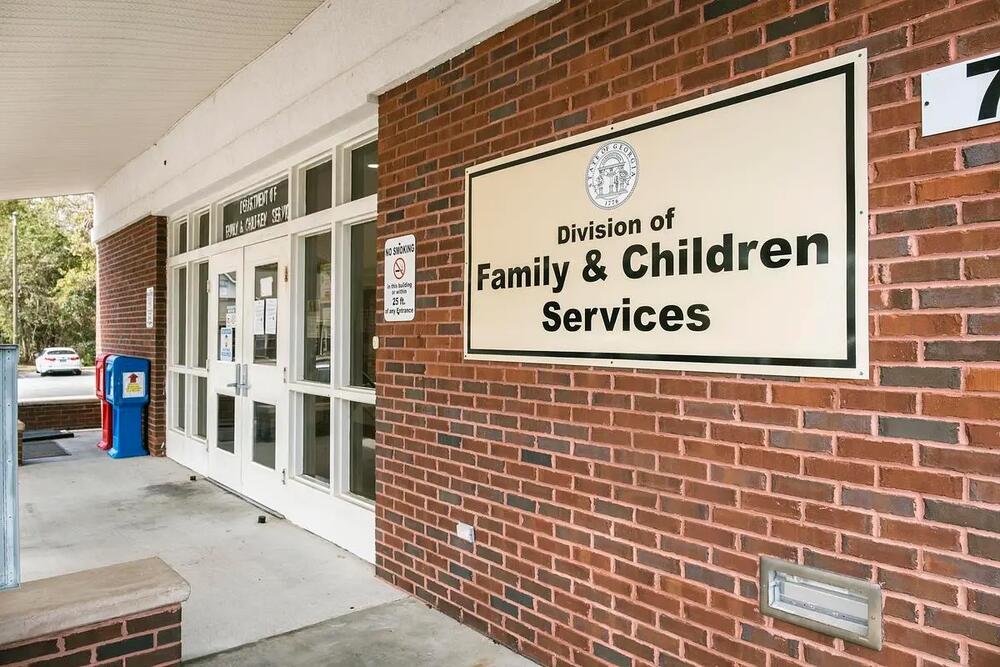
Section Branding
Header Content
Federal cuts to children’s advocacy group hits coastal counties hard
Primary Content

The federal government has cut some of its aid to National Court Appointed Special Advocates, which provides special advocacy for fostered youth in the juvenile court system. CASA Savannah, which serves 300 children, has felt the impact of the decision, with immediate losses of $110,000. CASA Glynn, which serves 400 children annually across five counties, could lose up to $100,0000.
CASA staff members and volunteers are essential in the juvenile court system. They are appointed to children in foster care for abuse or neglect and tasked with fostering connections with them. The Georgia Division of Family & Children Services (DFCS) is involved in initial court hearings with its counsel and the parents’ attorneys. CASA represents their interests since children are not allowed to be in court proceedings.
“They’re there to ensure that the child is getting everything that they need while they’re in foster care, that their voice is heard and that they’re not falling through the cracks of the system,” said Cary Greenfield, Executive Director of CASA Glynn. “They’re also the most stable person in that child’s life, from the time they come into foster care until the time that they’re either reunified with their families or with a relative or adopted.”
Earlier this week, the United States Department of Justice (DOJ) notified the National CASA for children that one of its federal grants would be terminated because it “no longer effectuates the program goals or agency priorities.” CASA Savannah became aware of the funding cut on Wednesday night, leading to quick repercussions.
The toll of the cuts
“Our National CASA grant totals $170,000 of this annual budget. We’ve only extended $60,000 of that, so we will see an effective immediate $110,000 reduction in our annual budget,” said Kate Blair, Executive Director of CASA Savannah. “We terminated a position, and we terminated the pilot program.”
Glynn CASA, however, expects a more gradual loss of revenue.
“Our local program is not taking the hit yet. Right now, the funding cut is to National CASA. What we’re trying to get out there is that if it goes to National CASA, it is going to trickle down to the state and then trickle down to the local entities that are doing the work for these children,” said Greenfield.
The disbursements take longer for more minor CASA affiliates like Glynn. National CASA’s federal grant, a contract from 2022, which was paid out to some local chapters, such as CASA Savannah. Yet, the ramifications could be more dire for smaller operations.
“Federal funds are a quarter of our funding, and it comes through VOCA, which is Victims of Crime Act funding. And that funding is there for all victims of crime, and that funding stream actually was already cut last year for everyone,” said Greenfield.
The VOCA grant cut last year cost CASA Glynn $70,000. This recent federal budget reduction is expected to cost it $100,000, along with the loss of two of its six staff members and a cut in its 100 volunteers who serve 400 children a year in the five-county Brunswick Judicial Circuit, which includes Glynn, Camden, Jeff Davis, Appling and Wayne.
CASA Savannah has 25 staff members and over 200 volunteers, and the recent cut led to a five percent budget loss.
“We only serve Chatham County, which has over 300 children in foster care, and we’re one of the few CASA programs in the state that serve 100% of kids,” said Blair.
Greenfield recalled an instance where three children were placed in foster care after their parents had problems with substance abuse. The court appointed a CASA volunteer to the case, and they created a rapport with the children, which led to the kids divulging that a relative had sexually abused them.
“They were able to immediately get it before the juvenile court judge; the children ended up being placed in a foster home. They got a lot of trauma therapy,” she said. “Law enforcement was involved, but these three kids are actually doing really well. They were adopted. They’ve made great improvements because they were really struggling.”
What lies ahead?
National CASA is appealing the DOJ’s decision and has a 30-day window to see if Congress repeals it.
“The bottom line is that the most vulnerable in all of our communities are the children who have no parents to care for them, and these are our community children, and we have to care for them,” said Blair. “And saving money now is going to cost all of our communities a lot more money in the future, because without the product and resources around these young people, they end up incarcerated, homeless, jobless, because they’ve not been parented.”
Both local affiliates are asking that the public write to their coastal delegates, U.S. Rep. Earl L. “Buddy” Carter and Sens. Jon Ossoff and Raphael Warnock, to urge them to immediately contact the DOJ to inquire about the award terminations and express their concern.
“These are children who don’t have a choice in whose raising them and where they are and what’s happening with them. These are some of our most vulnerable members of society, and if we’re not going to stand for them, who are we going to stand for?” said Greenfield.
This story comes to GPB through a reporting partnership with The Current.


